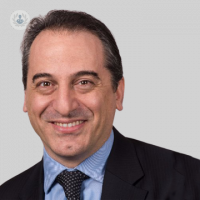Bariatric surgery: a solution for type 2 diabetes
Written by:Type 2 diabetes is a very common and serious disease that, in many cases, can lead to serious complications including heart attacks, strokes and reduced life expectancy. Conventionally, type 2 diabetes is treated using insulin and oral drugs. Unfortunately, up to 50% of patients who take medications, especially patients with associated obesity, are not able to achieve adequate control of their blood sugar levels. For many of those patients, metabolic surgery could be a solution. It can achieve adequate control of blood sugar levels and can even result in a complete disease remission.

Metabolic surgery
Bariatric surgery was developed in the 1950s as a surgical approach to reduce the size of the stomach, or to bypass a segment of intestine to reduce the absorption of nutrients, with the aim of achieving weight loss. We now know the original mechanical idea behind bariatric surgery is actually wrong. In fact, when you change the anatomy of the gut or reduce the size of the stomach, you’re basically changing the physiology that regulates body weight.
Patients do not eat as much because they simply feel less hungry, and, very importantly, their metabolism is made more efficient by the changes in gastrointestinal physiology This is an excellent physiological way to tackle obesity. However, is not mechanical as we first thought, we now understand the full implications of bariatric surgery. When you change the anatomy of the intestines it immediately, and powerfully, changes the way blood sugar levels are regulated, acting as a solution for type 2 diabetes.
Tailored treatment
There are a number of procedures that can be offered for the treatment of severe obesity or type 2 diabetes which can be offered by a bariatric surgeon. Those include gastric bypass, sleeve gastrectomy, biliopancreatic diversion, gastric banding, and also novel procedures that can be performed endoscopically. All these operations can be offered using a minimally invasive or laparoscopic approach which reduces post-operative pain and allows for an early recovery and a return to daily activities. These procedures can now be performed with the same safety as common operations such as gall bladder surgery and hysterectomy. The important thing is that we now know how these procedures work and that each operation has a distinct mechanism of action. Therefore, it is important to decide on the right surgical procedure based on the individual patient’s needs. There is not one procedure that fits all, but there are different procedures with different mechanisms of action and different effects that might suit particular. The challenge is therefore to identify the patient’s characteristics before deciding on the appropriate course of action.


